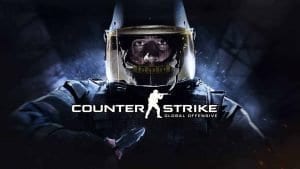FBI and ESIC Investigating Match Fixing in CSGO.
Counter-Strike: Global Offensive is huge; whether it’s about popularity, e-sports, prize-pools, or match-fixing, it makes top headlines. It is 2021 and CSGO isn’t coming slow as the FBI is investigating widespread match-fixing allegations in Counter-Strike.
[novashare_tweet tweet=”Counter-Strike: Global Offensive is huge; whether it’s about popularity, e-sports, prize-pools, or match-fixing, it makes top headlines.” cta_text=”FBI is onto something. Match Fixing in Counter Strike” hide_hashtags=”true”]
It is not about some random players eager to intentionally throw matches away for some bucks, no. We are talking about organized syndicates paying players a lot of money to throw professional matches. If this is true, then this controversy is all set to shake Counter-Strike as well as Valorant to its very core.
Counter-Strike
Counter-Strike is one of the oldest and most popular e-sports games in the world. Its large prize pools and massive popularity makes it vulnerable to both match-fixing and cheating. Recent reports suggest that Esports Integrity Commission is in close collaboration with the US authorities including the FBI to investigate match-fixing in CSGO.
Ian Smith, the integrity commissioner of the ESIC, gave an interview to a YouTube channel Slash32 about the investigation. He talked about the ongoing investigation about a “relatively small but significant group of players” who “organized match-fixing in North American [Mountain Dew League]” for a “long period of time.”
Smith further added, “[It’s] what I would describe as classic match-fixing — players being bribed by outside betting syndicates in order to fix matches, rather than players just doing it off their own bat opportunistically, and it’s being going on for longer, it’s much more organized.
So again, to some extent, we’re working with law enforcement and the FBI, who only recently have had a sports betting investigative unit within the FBI. They’re good, but they’re inexperienced because sports betting has never been a big thing in America until recently, so everybody’s kind of finding their feet on that one.”
Previously, ESIC handed over sanctions to 35 Australian CSGO players for betting on their own matches. Some of these players are banned for 12 months for same reason. Smith also added that ESIC will announce charges in the coming days or weeks.

Inside Gaming News 24/7 – Reinout te Brake – Games Podcast – Game Consultant – Best Video Gaming News 2021


